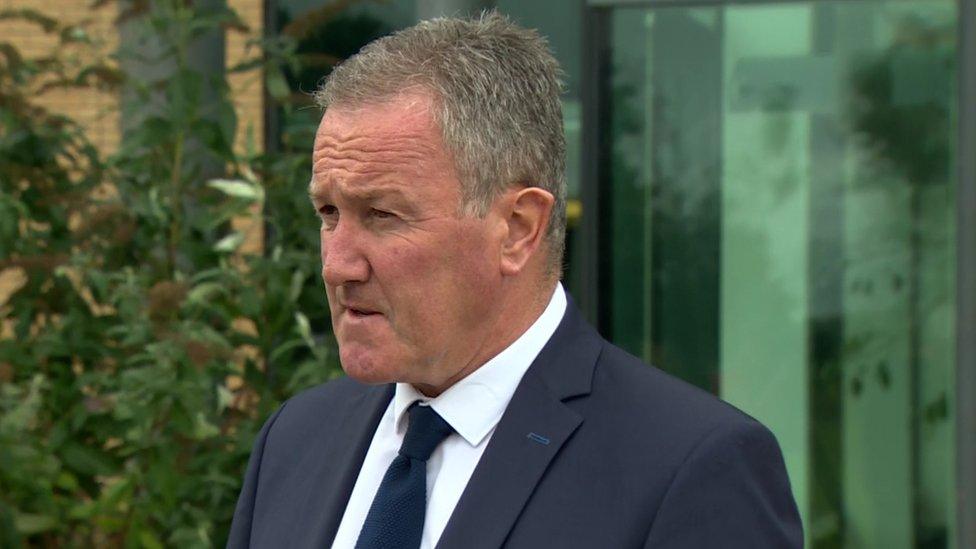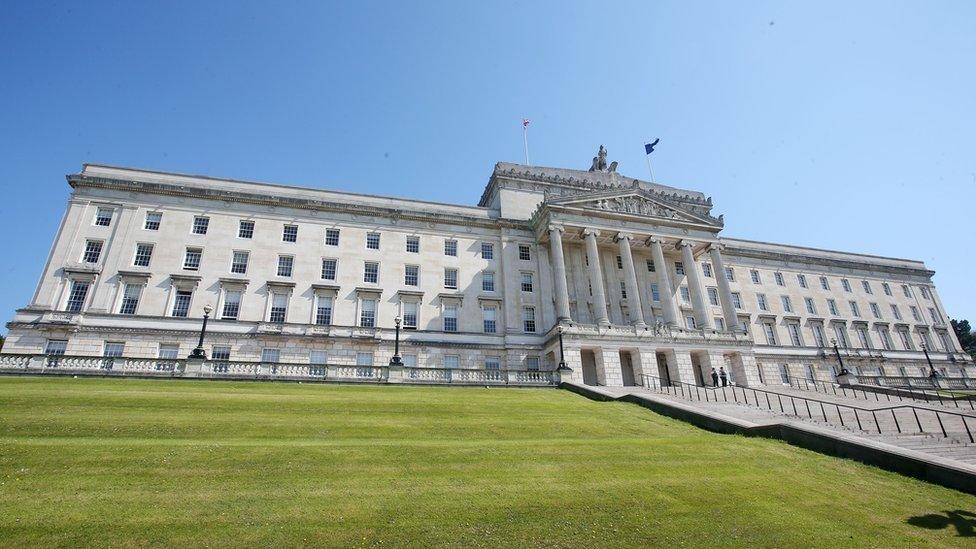Income tax: Consultation on devolving powers to Northern Ireland
- Published
- comments

Northern Ireland's finance minister has launched a public consultation on the possible devolution of taxation powers.
It follows the report of the independent Fiscal Commission which concluded income tax would be the most effective form of economic devolution.
Currently, the only significant revenue raising undertaken by Stormont is regional rates, a property tax paid by households and businesses.
Stormont was given the power to vary the rate of corporation tax in 2015.
However that legislation also included a "commencement clause" meaning the Treasury first needs to be satisfied the Northern Ireland Executive's finances are on a sustainable footing.
Finance Minister Conor Murphy said the Fiscal Commission had "started a conversation" around what additional powers could be provided to locally elected ministers to set taxes in line with local needs and circumstances.
He added that while it will be for an incoming finance minister to bring recommendations to a restored executive, it is "important that the public has its say".
The executive is not currently functioning after the DUP refused to nominate a deputy first minister as part of its campaign against the Northern Ireland Protocol.

Finance Minister Conor Murphy said it was important the public has a say on the issue
When the commission published its final report in May, it said "virtually everyone we spoke to raised the issue of the political capacity of the Northern Ireland Executive".
It added that concerns were expressed over the executive's stability, as well as its capacity to reach coherent and consistent policy decisions.
Some consulted saw this as "a strong argument against further devolution".
Others felt that devolving additional tax powers could help to build capacity and improve stability.
The commission said income tax powers could be devolved to Northern Ireland by 2027 if there is political agreement and will to do so.
The Northern Ireland Executive has much less power over tax than the devolved institutions in Scotland and Wales.
Income tax has been partially devolved in Scotland since 2016 and means medium and higher earners pay more than in the rest of the UK.
Since 2019, the Welsh government has also been able to vary rates of income tax.
The Northern Ireland consultation will run until 29 November.
Related topics
- Published22 March 2022

- Published13 December 2021

- Published5 April 2019
